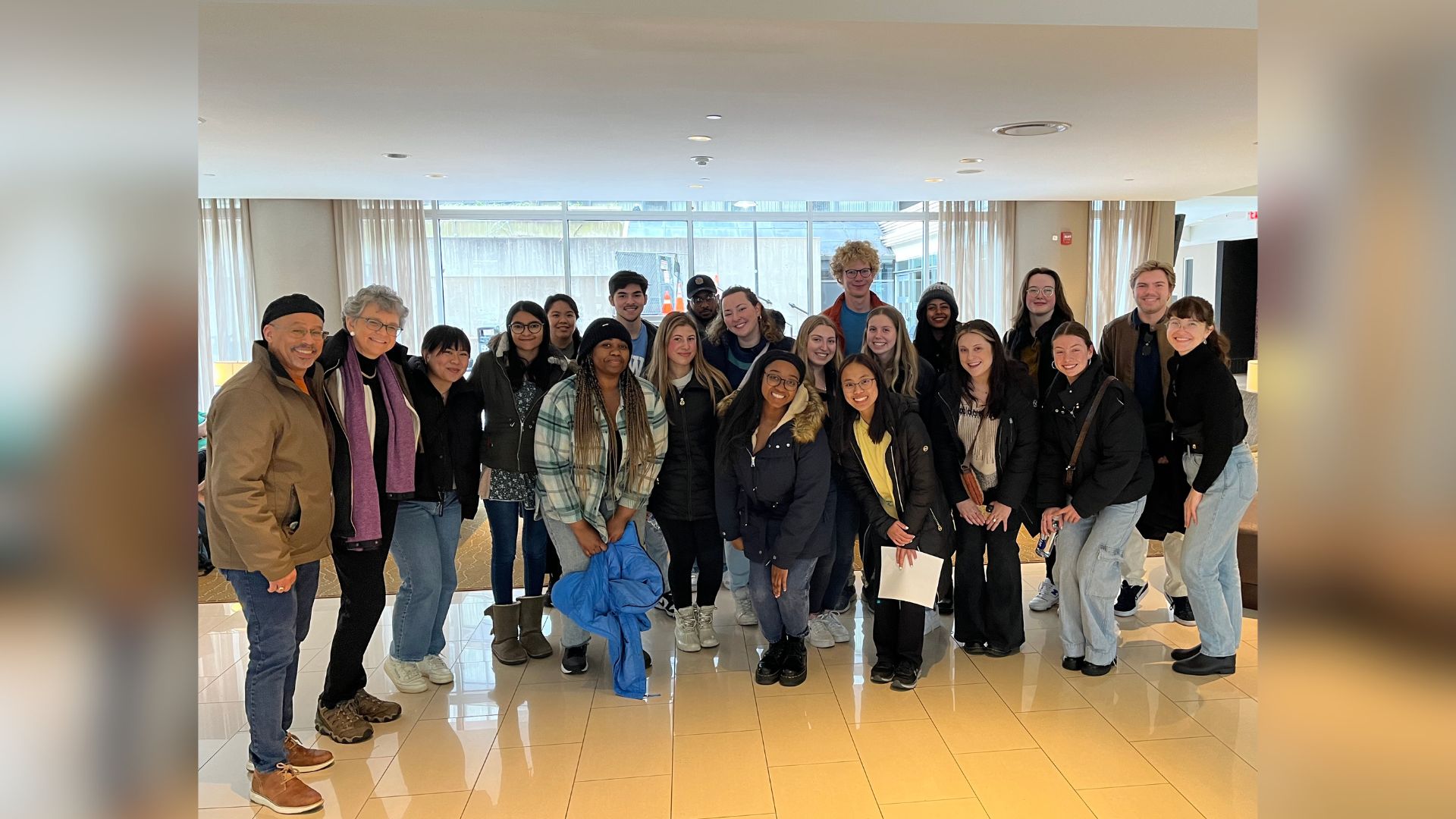While many students were ringing in the new year and resting up before the spring semester started, a special group of students chose to start 2023 by taking an early-term start course from Klein College of Media and Communication Global Opportunities.
Rocking the World: Disrupting Stereotypical Notions of Race, Class and Religion is a three-credit course and is team-taught by three incredible advertising and public relations professors: Associate Professor of Instruction Dana Saewitz, Associate Professor of Instruction David Brown and Assistant Professor Meghnaa Tallapragada.
The class came to fruition in the fall of 2021 when Saewitz and Brown were discussing Caste: The Origins of Our Discontents by Isabel Wilkerson – a book that examines the similarities between caste systems in India, America and Nazi Germany.
Saewitz and Brown brought in Tallapragada, and the trio started thinking of ways to teach a course about the media’s role in perpetuating and disrupting caste systems, and Rocking the World was born. In addition, the course would include a field trip to Washington.
In January 2023, the course was taught for the second time – and the first time entirely in-person.
“We were so thankful to have three very intense days in the classroom,” Saewitz said. “It was just so wonderful to be in person.”
The students and professors spent the first few days in the classroom diving deep into the origins of caste systems and how the systems in each country informed each other. Using Wilkerson’s book as a guide, the professors shared their personal experiences and encouraged students to reflect on theirs.
“It was really cool to see the connections that each professor had to the topic they were teaching,” said communication studies and political science major Jiali Mann. Though the days were long, Mann was excited for each new day and enjoyed learning about caste systems in so much depth.
The class attracted the attention of more than just Klein College students, though. Legal studies student Sam Quaye, FOX ’23, heard about the class while taking Advertising and Globalization with Saewitz. “This is one of the best classes I’ve taken at Temple, for sure,” Quaye said.
Quaye had never heard caste described the way it was in Wilkerson’s book and was particularly intrigued by the role that food and names play in dividing people. He noted that even though each day was about a different system, the professors did a great job drawing connections between them.
Both Mann and Quaye are thankful for the opportunity to learn with their peers and have tough but important conversations.
After three days in the classroom, the students and professors headed to Washington. There, they visited the United States Holocaust Memorial Museum and the National Museum of African American History and Culture. In their free time, students also explored other museums, such as the National Air and Space Museum and the National Museum of the American Indian. They also ate at an Indian restaurant, where they discussed food and its role in the Indian caste system.
Even for students like Mann, who had been to many of the museums before, the experience was more meaningful after taking the course.
“The most meaningful part for me is watching how students take this information, process it, talk to each other, and ultimately create their artifacts of disruption,” Tallapragada wrote.
After returning from Washington, the students were tasked with creating an artifact of their choosing to reflect on their experience in the class and their future plans to disrupt caste systems. A website has been created with student work from this year and last year’s students and can be viewed here.
Mann created a game-style PowerPoint that simulated what it is like to go through life being rewarded or penalized based on an arbitrary trait: height. She hopes this will help people see how race, religion and other factors that are used to discriminate are arbitrary, as well.
Quaye created a gallery of pictures from the trip and used his experience in podcasting to do a three-episode series about what he learned in the class and how he plans to use this knowledge in the future.
Students disrupt by telling their stories, Saewitz said. Many of these stories were shared at the second annual Rocking the World Symposium on May 3.
At the symposium, students showcased their artifacts to family, friends and faculty. Graduate student Ella Lathan created a video documenting the class. She interviewed her peers about their experiences, while Taylor Warren created a glass mural and a PowerPoint about significant disruptors in history. The last slide, appropriately, features Saewitz, Brown and Tallapragada.
“This is the second time that we’ve taught the caste class and each time, the work of the students gets richer, deeper and more insightful,” Brown wrote. “As a professor, we continue to learn as much as we teach.”

